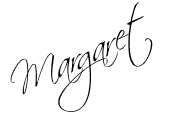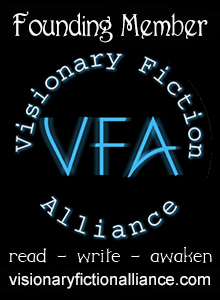
Dorothy Ann Skarles is back with another lesson on how to create a memoir. Yes, concerning secrets. Welcome Dorothy.
Warning! Secrets will cause writer’s block.
The telling of a secret may make you feel guilty, but it is the knowledge of family discovering what has been concealed over the years that will stop you from writing your life story.
Three women I know lost courage to write their memoir from the constant fear of what their family would think. A nurse in World War II who was captured by the Japanese and couldn’t bear to tell her experiences. A women who was abused by a family member. Another, married to a man in the Mafia who cut his picture out of their wedding photo.
People keep secrets for various reasons. They may be afraid of a partner’s hostility and possible rejection. They know it is often in the best interest to keep some secrets private. The pressure for truth to be revealed is often responded to poorly. And in the “telling” it does not help to feel rejected, scorned, or stigmatized only because you were trying to work through a serious issue.
There are even times when a secret is spread around like a newspaper, making people think about it more frequently and giving it more importance than it deserves. Then as stress increases and gives you a lot of anxiety, it prevents you from dealing with the problem.
But take heart. To reveal a secret is often helpful. Research shows that the simple task of writing it down makes a person feel better. Seeing the words on paper takes out the sting and lets you make a rational decision on whether you should or shouldn’t tell.
There is another surprising fact to take into consideration. Those agonizing, unresolved problems rooted in the past that dominated your life were known all along to family members. By writing it down, it releases you of your burden. It doesn’t hurt so much or seem so bad or embarrassing.
Time truly does heal a lot of things.
So take the bull by the horns and write that secret down. Get rid of that writer’s block and wondering if you should tell or not tell. “My hateful divorce. Three abortions at eighteen. Giving away my daughter. Why I was in jail. My gamble addiction. Marrying two wives two weeks apart. Borrowing money from Uncle Joe and never paying it back.
After you have finished all the whys and wherefores, date it and hide it away.
After a few months, read what you have written. Ask yourself: “If I leave out specific details would my story lack continuity or meaning? Would my life show I dropped into a void where my mind could not heal? Should I risk bad feelings among family members? Should I tell how I really really feel?”
Be honest with yourself and decide.
Should I or shouldn’t I?
Keep in mind, the road to forgiveness is the pathway to healing, and just as important, if not more so, is our self-forgiveness to heal our own souls.
On a cautionary note, I’ll leave you with a quote from Syrus:
“I regret often that I have spoken; never that I have been silent.”
You are in control. The decision is yours alone.
Dorothy taught memoir writing at Lodi Adult School until her retirement. She is the author of two novels and one non-fiction book—Learning To Write The Easy Way published by Twilight Times Books.
Trying to decide if the writing life is for you? Then start with a very important book Learning to Write the Easy Way for Fun, Posterity, Money by Dorothy Ann Skarles.
Discover your hidden writing talent. Discover your past and present for future generations. Discover the book in you.
Whether you write it as it happened or turn it into a fictional novel, your fond memories and personal experiences can be a book that captures both the past and the present–even if you’ve never written before. Dorothy Ann shows how to put your life and times in easy writing steps that combine specific fiction techniques with non-fiction.
It’s your life story, and your turn to tell it.
Also available at Twilight Times Books:
As always, thanks for stopping by,


Good advice. But hilarious typo in the second paragraph of Lesson 3, or maybe it was intentional: "couldn't bare to tell her experiences" – I tend to think it must be a typo, because of the seriousness of that woman's circumstances. Who's going to make puns about Japanese prison camps?
— K
Kay, Alberta, Canada
An Unfittie's Guide to Adventurous Travel
Thanks, Kay. A typo it was. Easy fix.
Dorothy. I don't think I have the courage to reveal family secrets. In my journals, maybe, but even then it's hard. It's easier for me to tackle my demons in fiction, using fictional characters who are hardly recognizable as people I know.
But I see your point. And in the end, it's still a personal choice. As you say, "You must be honest with yourself and decide, should I or shouldn't I."
Dorothy this is great advice. Personally the woman who survived a Japanese prison camp would be so interesting, and for her family would take pride in the fact, her spirit was so strong, that she could surprise at all.
Thank you Kay for writing a nice post–and thanks for catching the misspelled word. It also gave me a laugh. I have been making a lot of boo boos of late. I really need someone to go over the writing. And Margaret helps also.
Dorothy said: Discover your hidden writing talent. Discover your past and present for future generations. Discover the book in you.
How true. Everyone has a story to tell, and what better way to validate yourself than with the written word. Keep on writing everyone. Bernadine
Bernadine, I know from teaching that everyone has a story to tell. Many things happen throughout our day that we can write about. Like my day today. I am invited to an early Thanksgiving dinner with friends. Now I get to enjoy two days of turkey.